Institutional Cooking Stoves in Uganda
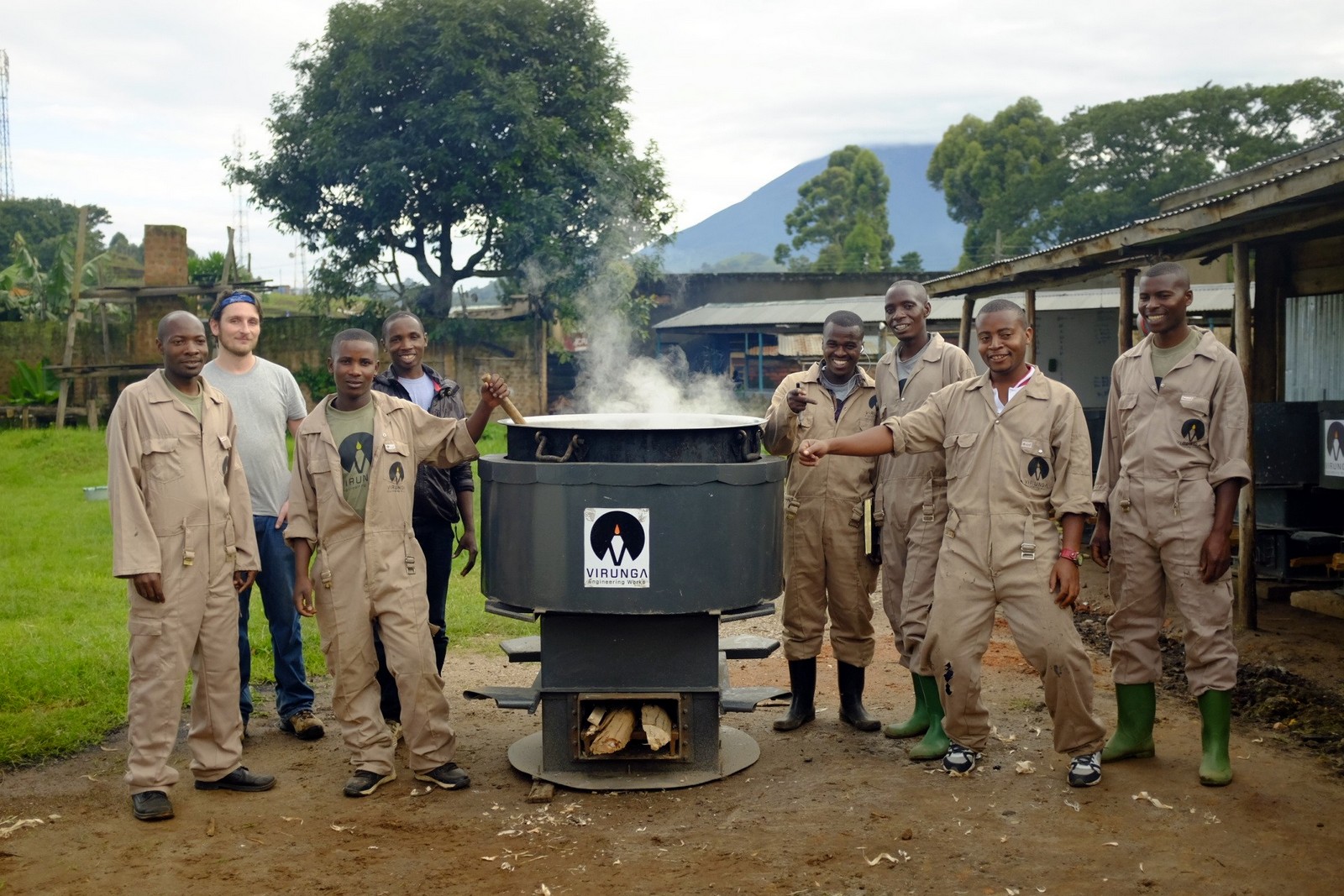
The Dissemination of Improved Institutional Cooking Stoves to Primary and Secondary Schools in Uganda
The pupils of 600 schools need your help. See how a Ugandan cooking stove project intends to improve their lives.
Uganda, East Africa, February 2, 2018 – Part of the Maximpact mission includes assisting worthwhile projects to raise awareness. Today we would like to introduce one such project, ‘The Dissemination of Improved Institutional Cooking Stoves to Primary and Secondary Schools in Uganda’. The initiative is helping to improve the lives of children and their communities, while reducing emissions through the distribution of improved institutional cooking stoves.
The project’s purpose is to deploy up to 1,200 institutional improved cook stoves (IICS) into 600 schools all over Uganda by the end of 2019. This will provide benefits to approximately 360,000 pupils.
The current traditional cooking technologies consume tremendous amounts of firewood, causing significant CO2 emissions, as well as creating health issues for the people working in the kitchens.
VEW’s Institutional Stoves achieve the following benefits:
- Reduces firewood consumption by around 70%. This represents significant financial savings. After 5 years of operation they will have saved more than the cost of the stoves.
- The firewood savings from a single stove will result in a reduction of approximately 70 tons of CO2 per year thereby helping to mitigate the global climate crisis.
- Saves more than 8,000 ha of forests and decrease environmental degradation.
- Improves the indoor air quality, reducing the prevalence of respiratory diseases in the kitchens.
- Decreases unsustainable deforestation.
The project is being implemented by Virunga Engineering Works (VEW), the local producer of the Stoves together with the environmental consultancy, mkaarbon safari.
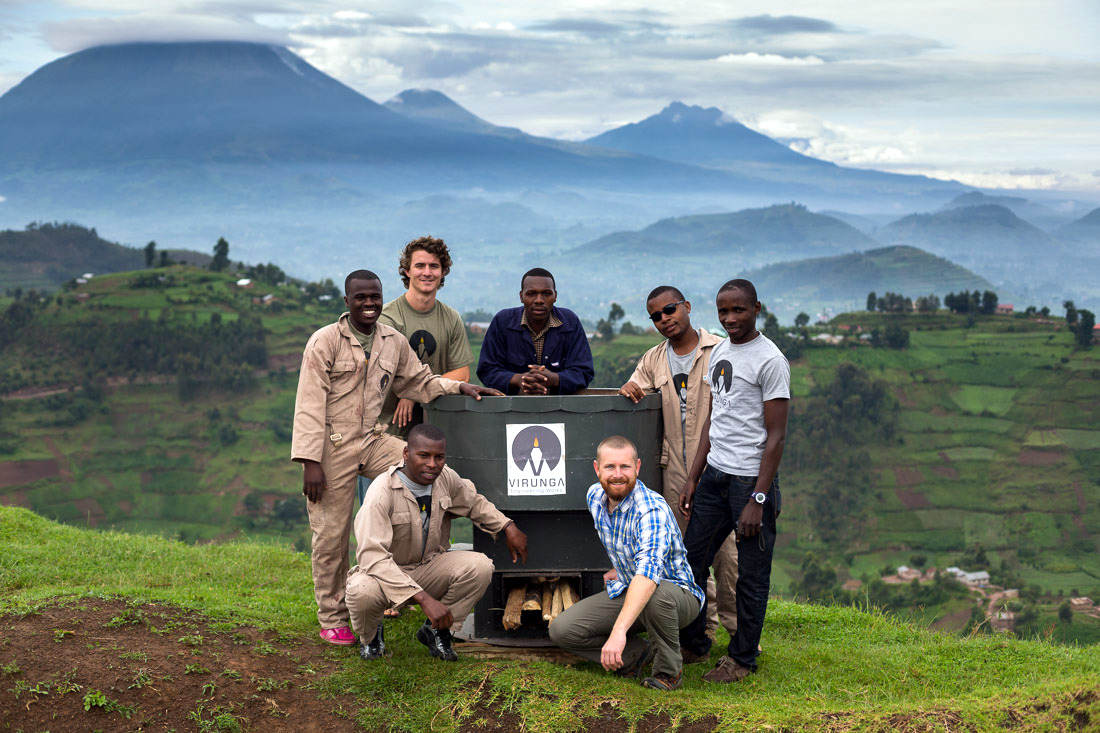
Context Description & Problem Statement
The Uganda National Alliance for Clean Cooking (UNACC) estimated in 2012 that only 7% of the population were using clean and efficient cooking stoves. Institutions in Uganda, like schools, health centres, prisons, commercial buildings and restaurants primarily rely on traditional cooking technologies, such as three stone stoves, open fires etc.
The most prevalent cooking fuel in the schools of Uganda is wood. 96% of schools use wood as their main cooking fuel. The remaining 4% of schools use charcoal.
Unsustainable deforestation results in environmental degradation, jeopardizing biodiversity, decreasing soil fertility, and causing water run-off and soil erosion, while smoke and particulates related to cooking in the kitchens results in the premature death of both the cooks and their assistants.
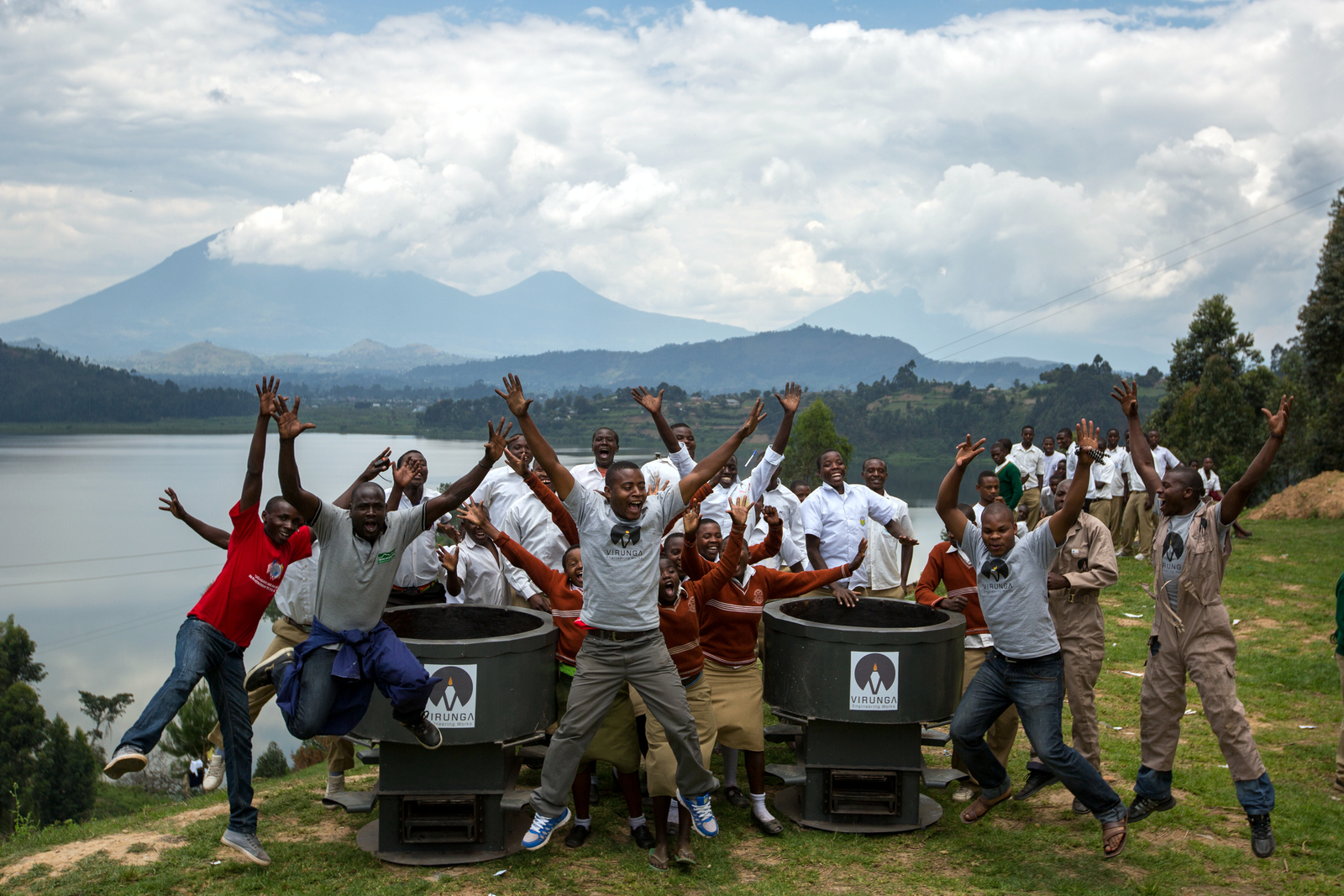
Project Objectives
The project objective is to achieve an annual reduction of 45,000 tons of greenhouse gas emissions. To give you an idea, 1 ton of CO2 would be emitted if you drive continuously for 38.85 hours in your car, or the energy used by the average house over a 28 days period.
This will be achieved by distributing 1,200 long-lasting IICS of 300 l capacity to 600 schools all over Uganda.
The IICS are manufactured by Virunga Engineering Works (VEW), who are based in Uganda. Along with emission reductions (SDG 13), the project will contribute to other Sustainable Development Goals (SDGs) in the following ways:
- For schools to reduce the money spent for purchasing firewood (SDG 1)
- For schools to reduce the money spent for replacing IICS (SDG 7)
- For cooks/assistants in the kitchen to reduce respiratory illness caused by indoor air-pollution (SDG 3)
- To decrease unsustainable deforestation and environmental degradation (SDG 15)
- Help mitigate climate change and contribute positively to SDG 13, by stabilizing forests, increasing biodiversity, enhancing soil fertility and water retention, as well as preventing soil erosion (SDG 15).
The savings each school will make by not having to purchase an IICS, as well as the on-going savings on the cost of firewood, can be utilised for other purposes, such as:
- Offering scholarships
- New classrooms
- Refurbished dormitories
- Learning materials
- Improved nutrition
The savings will mean each school has more money to invest in providing a quality education to its pupils in line with SDGs 2 and 4.
What makes VEW IICS stoves different
The IICS stoves durability far exceeds normal expectations. While other models and brands on the market last 2-3 years, VEW’s stoves last 25+ years when properly utilised and with only basic maintenance. With the occasional replacement of spare parts, the IICS can potentially last much longer than this.
This durability comes from VEW’s use of ultra-heavy duty construction materials. They use a combination of galvanized and stainless steel, cast iron and volcanic rock.
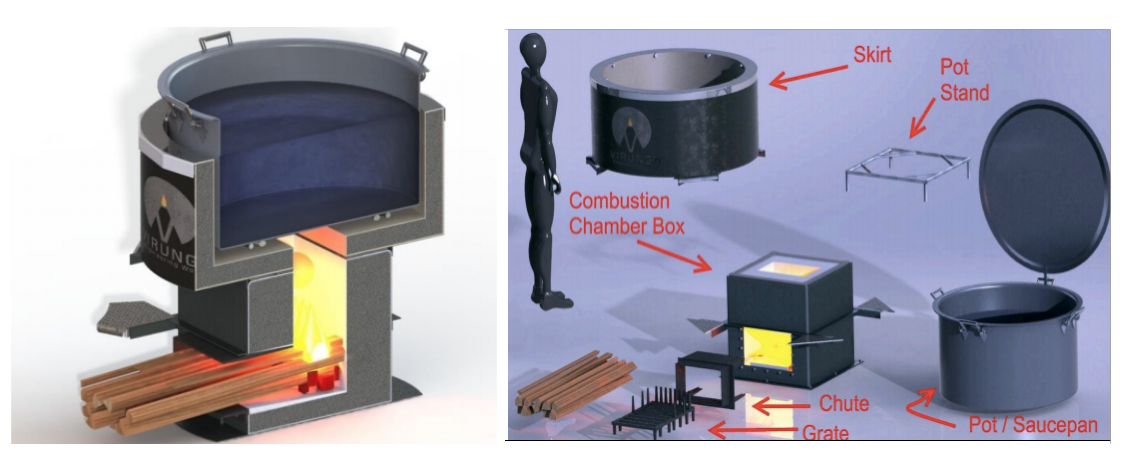
The project is focusing on institutional cooking stoves, rather than on household ones, because they can achieve the same degree of impact with less administrative burden and buy-in of less individuals.
The project will be certified as a Gold Standard carbon project, hence a rigorous monitoring, quality assurance and quality control have to be followed. Usage and maintenance of the IICS will be continuously monitored, reported and verified for at least 15 years by VEW and mkaarbon safari.
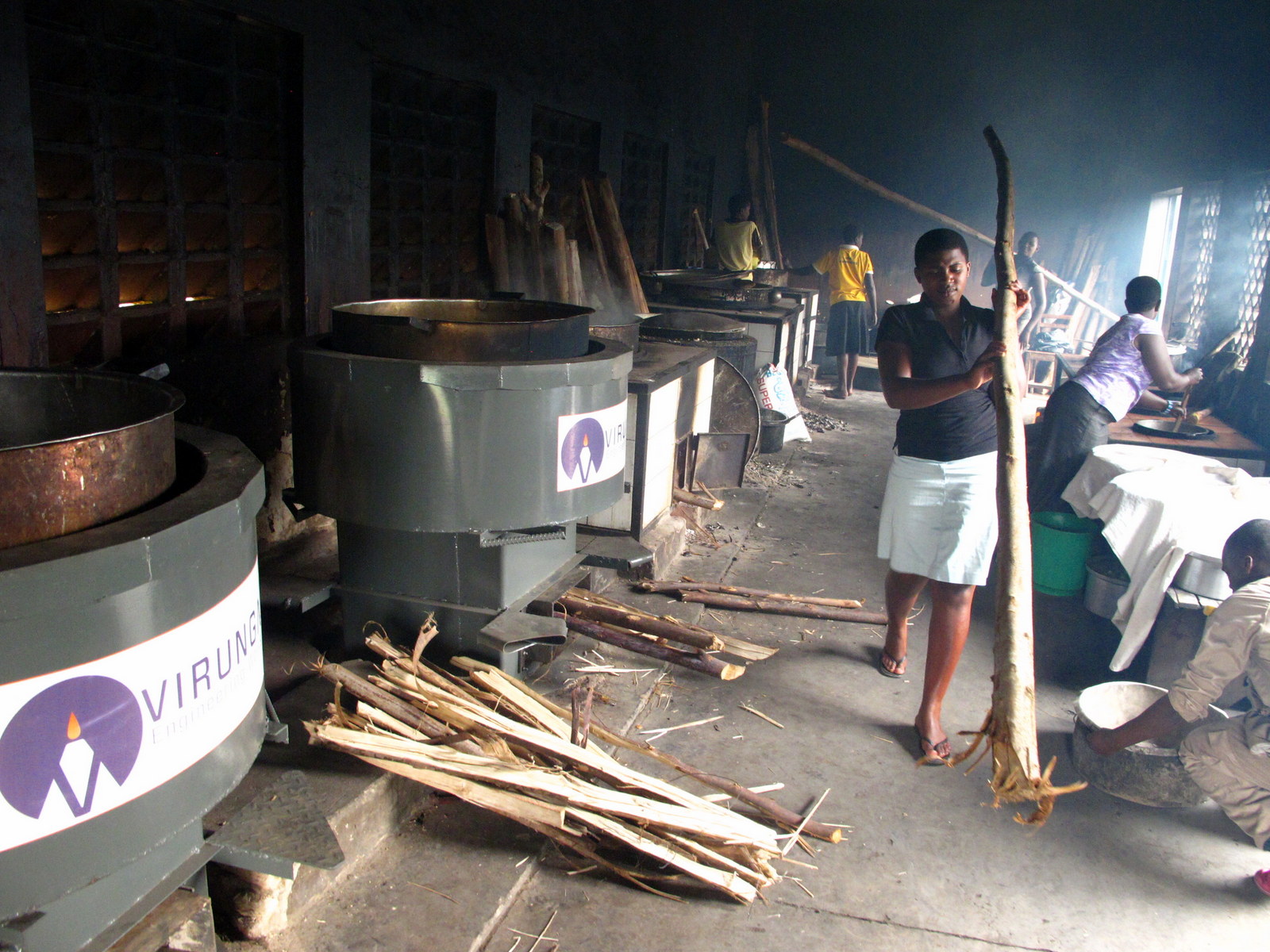
Schools need your help…
The main challenge schools face is paying for the stoves. Schools don’t have the financial means to pay the full IICS price.
The aim of this fundraising is to allow schools to get access to the improved stoves by providing the funding for them. However, schools do have to contribute a fraction of the cost in order to strengthen the feeling of ownership and appreciation for the improved stove.
Schools need your help to eliminate the use of inefficient and dirty cooking methods, and so they can start enjoying the benefits of an efficient and clean cooking stove.
For more information on how to help contact:
Virunga Engineering Works (VEW): Max Gold (Managing Director) Email: contact@VirungaEngineeringWorks.com
mkaarbon safari: Johann Thaler (Managing Director)
Email: johann.thaler@mkaarbonsafari.com